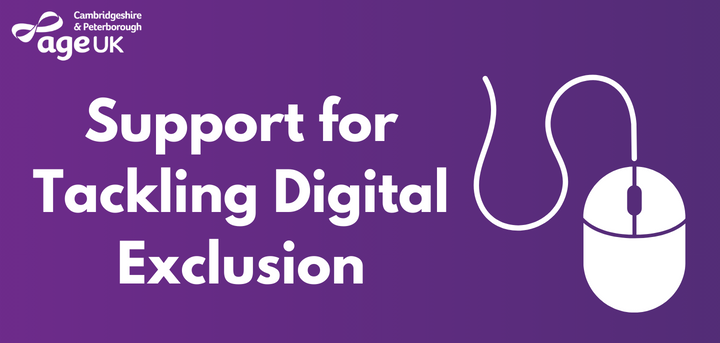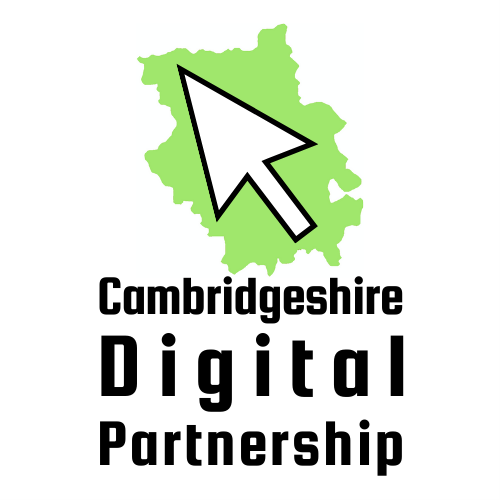Support for Tackling Digital Exclusion: Navigating Online Essentials with Confidence

Published on 01 February 2024 10:40 AM
In an era dominated by digital advancements, it can be overwhelming to dive into the vast online world. Fear not, we're here to guide you through essential steps, ensuring you harness the power of the internet while prioritising safety.
Online essentials
With so much available online, it can be hard to know where to start. Here is some key steps to help you make the most of what the internet can offer whilst staying safe.
Getting Started online
There are many things you are able to do on the internet. Such as:
-
One of the first things you should do online is set up an email (electronic mail) account. It's a free and easy way to stay in touch with family and friends, and it's the main way that organisations and companies communicate with people.
-
You can use messaging and video-calling apps and social media to socialise online, whether you want to stay in touch with friends and family or meet new people.
-
You can use the internet to do your shopping from the comfort and convenience of your own home. Goods can be delivered directly to your house (usually for a small delivery fee)
-
Using online banking means you can keep control of your finances from home and whilst you're out and about, using your bank's website or app.
-
Most utility companies or services like council tax allow you to manage your accounts online.
-
It's important that you're able to get help from a GP if you need it, but it's increasingly common to only be able to book GP appointments online.
-
You can watch TV on your computer, smartphone or tablet on the BBC (known as 'BBC iPlayer'), ITV (known as 'ITVX'), Channel 4 and Channel 5 websites.
-
The internet is full of resources to help keep you busy, learn new skills or practise your hobbies – whether you're a keen cook looking for recipe ideas, or you want some tips to help you look after your garden.
Staying safe online
Online scams are becoming increasingly sophisticated and many people are caught out, even those who are regular internet users. Every year in the UK, millions of people lose money to scammers or unknowingly share their personal information.
But knowing what to look for can help you avoid scams and fraud.
Age UK have some usesful information on different scams and what to look out more.
Making devices easier to use
If you have a visual impairment or low vision, there are many ways you can just the display settings of your device to make it easier to use.
To make font size bigger on an Android Device
-
Open the devices settings
-
Tap 'Accessiblity' then 'Font Size' for phone or 'Display Size' for tablet
-
Use slider to choose your prefered size
To make font size bigger on an Apple Device
-
Open your devices settings
-
Scroll down to find 'accessibility', or you can type 'accessibility' into the search bar at the top of the screen. Then click 'display & text size'.
-
Click on 'larger text' and then 'larger accessibility sizes'. You can then use the slider to choose the text size you'd like.
Find out more ways to make your devices more accessible for you on Age UK's website. Click here.
Keeping in Touch Online:
The internet opens up avenues to connect with loved ones and forge new relationships. From emails to video calls and social media, staying connected online fosters a sense of closeness, combating feelings of loneliness.
Emails
Email is electronic mail. It's a free and easy way to stay in touch with family and friends. You'll need an email account to access online services, shop or bank online, set up a social media account, and sign up to email newsletters.
Learn how to set up an email here.
Video Calling
Video calling is a great way to stay connected because it lets you and the person you're talking to see each other while you chat. Video calls use the internet, so if you're using a Wi-Fi connection, you can call people who live abroad at no extra cost. This can help you stay in touch with your friends and family if they live far away.
You can video call on:
-
Whatsapp
-
Facebook Messenger
-
Zoom
-
Skype
-
iPhone Facetime
Social Media Accounts
Social media is a great ways to stay connected – by chatting with family and friends or following public figures and organisations. You might even meet people with similar interests or hobbies.
See Age UK's website on how to set up accounts on different social media platforms and how to protect your privacy. Read more here.
Managing Your Money Online:
Embracing online shopping and banking can streamline tasks, but safeguarding your money and identity is paramount.
Online Banking
Online banking allows you to keep control of your finances from home or whilst you're out and about on your bank's website or smartphone app. Banks take the security of accounts very seriously and invest lots of time and money to make sure your online account is safe.
There are measures you can take to keep your money safe. Read more here.
Online Shopping
Shopping online is quick and convenient – it can be done from the comfort of your own home, or even when you're out and about. But it's important that you shop securely by protecting your personal and financial information.
Read more on how to shop online and doing so securely here.
Local Digital Support
We know that being online can be confusing and there is a lot to learn. There are local companies that are available to give support.
 We are a Supporting Member of the Cambridgeshire Digital Partnership, a network partnership and steering group sharing advice, training, resources and best practice in order to improve digital skills and inclusion for residents, and working to tackle the digital divide.
We are a Supporting Member of the Cambridgeshire Digital Partnership, a network partnership and steering group sharing advice, training, resources and best practice in order to improve digital skills and inclusion for residents, and working to tackle the digital divide.
A Resource Library providing a selection of ‘good reads, toolkits and training providers that offer services or information related to digital inclusion’ can be found on their website : https://cambridgeshiredigitalpartnership.org.uk/resources/
Cambridgeshire Digital Partnership mission statement:
To improve digital inclusion across Cambridgeshire. Share information, promote good practice and working relationships between service provider organisations and individuals from the voluntary, community and statutory sectors who work to alleviate digital exclusion issues. Promote and develop funding opportunities and partnerships for digital inclusion services.
-
Cambridgeshire Libraries
Cambridgeshire Libraries have free CambWifi and offer a range of activities plus Learn My Way courses to help people improve their digital skills using free resources.
Many libraries run 1-to-1 sessions with customers who want a bit of help using a computer, laptop or tablet. These sessions are offered by the library volunteers known as Digital Buddies.
Ask at your local library, or find out more about the County Council’s online library services.
-
Cambridgeshire Skills
Cambridgeshire Skills offer a range of online and classroom Digital Skills courses for all levels – from online shopping and banking to more advanced courses to develop your skills for the workplace and home – throughout the county.
If you are over 19 years and you don’t already hold an ICT qualification these courses are completely free.
Find full details on the Cambridgeshire Skills website, call 01353 613013 or follow Cambridge Skills on Facebook or @CambsSkills on Twitter.
-
Cambridge Online
Cambridge Online is a registered charity, with a team of digital champions helping people across the county to improve their digital skills.
Find out more at www.cambridgeonline.org.uk, call 01223 300407 to leave a message and get a call back, email help@cambridgeonline.org.uk or view a quick list of useful links to things that might help you get online.
-
Ability Net
AbilityNet is a UK-based charity with a global reach. With a network of more than 350 friendly tech volunteers who can help you or someone you are supporting. They can come to your home, or help you on the phone.
- To request help from tech volunteers just call them on 0300 180 0028 during UK office hours, or email them at enquiries@abilitynet.org.uk
- Or fill in the home visit request form
Age UK, the national charity, offers comprehensive, step-by-step guides to ensure confidence and safety online. These guides cover everything – from sending emails to secure internet usage.
